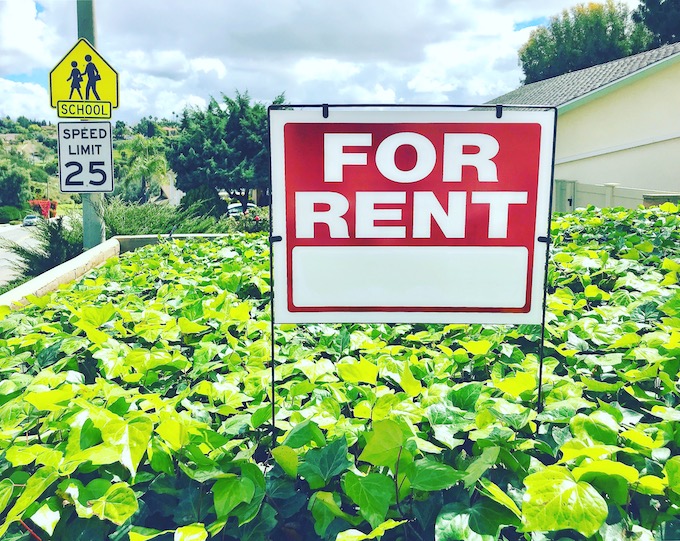Are you thinking about renting your home? Do you have rental properties that you want to rent out to tenants? Have you heard about obtaining landlord insurance for a rental property? When you think about insurance for your home or your properties, the first thing that may come to mind is homeowners insurance. Unfortunately, if you plan on renting out your home, you're going to want to cancel that homeowner's policy. What you need to purchase is a landlord insurance policy! You came to the right article if you are looking for more information on a landlord insurance policy. We will go over what this insurance policy is and who you can contact for more details. Let's answer the question: "Do I Need to Change My Homeowner's Insurance If I Rent Out My House?"
Changing My Homeowners’ Insurance Policy
Most homeowner insurance policies do not cover your home if it is used as a rental property. This is because your property is now a business asset, not a primary residence. Obtaining your landlord insurance may be a more expensive option.
What Is Landlord Insurance for a Rental Property?

A landlord insurance policy is a type of insurance you purchase to cover your home if a tenant rents out your home regularly. This insurance considers the risks associated with owning a rental property and protects your rental income. Depending on the type of rental property you own, there are different endorsements and coverage options available to you. Landlord insurance policy coverages:
- Coverage for personal items
- Rental income protection
- Landlord liability
Most landlord insurance policies also offer coverage for the building of your rental property against specified perils. This also includes any other structures listed in your policy.
Do I Need Landlord Insurance?
If you plan on renting out your home, then you do need to purchase landlord insurance (though not required by law). If the everyday use of your home is not a rental and the intention of the property is not to be a rental property, then your insurance company may not require you to purchase landlord insurance.
Most insurance companies will review your situation on a case-by-case basis. If they say that you do not need to purchase landlord insurance, they may add a rental endorsement to your policy. Your insurer may also limit or adjust your coverages. Although this coverage isn't required by law, having landlord insurance will save you from any catastrophic losses.
For example, if your building were to catch fire and you did not have insurance, you would have to pay out of pocket to repair the building. You would have to pay a small deductible with landlord insurance, and your insurance company will pay the rest. On the other hand, let's say your rental property did catch on fire, and the fire caused $15,000 worth of damage. When you go to make a claim, you notice that you have a $1,000 deductible. This means that you will have to pay $1,000 worth of damages out of pocket before your insurer will pay the rest.
Questions Your Insurer May Ask You
As mentioned earlier, you may or may not need to purchase a landlord insurance policy. There are a few questions your current insurer may ask you to see if you need landlord insurance. Examples of questions your insurer will need to be answered:
- Will you have a contractual agreement with your tenant?
- How often is the home rented out?
- Who are the possible tenants?
- How far do you live from the property?
- Who finds and screens the tenants?
- Is the rental furnished?
- Who holds responsibility for maintenance?
Knowing the answer to these questions before you speak with your insurer is very important. Your responses will help your insurer determine if you need to carry landlord insurance or if you don't. Your insurer will also let you know what type of insurance will best suit your situation. Note that landlord insurance also covers short-term rentals.
Questions to Ask Your Insurer
As stated earlier, most homeowner insurance policies do not cover your home if it is used as a rental property. If your insurer cannot accommodate you, it is best to reach out to a landlord insurance provider. Once you locate a provider, there are a few questions you should ask them to make sure they are a good fit for you. You will want to know if they have an "all-risk" coverage.
Most insurers have a "named perils" list that lets you see what is not covered. Every insurer has its own set of coverages, so it's best to ask this question. You also will want to ask about any exclusions or any limitations the policy may have. The last thing you want is to make a claim for damage your tenant caused to find out that it was excluded from the policy. Other questions to ask your landlord insurer:
- Is there coverage for water damage?
- Are claims settled on an actual cash value basis?
- Are there insurance discounts for alarm systems?
Just like your auto insurance company, your landlord insurance company may also offer you discounts for any added security measures you put in place. If you opt for a higher deductible, you may also see a decrease in your premium.
What is Rental Income Protection?

The best landlord insurance companies will offer you rental income protection, which protects the money you receive in rent from your tenants. If your rental property incurs damages from a covered peril, such as a natural disaster, your renter will have to move out while you repair the property. While your property undergoes repairs, your tenant most likely won't be paying you rent. Your rental income protection coverage will take care of the monthly rent payment your tenant would normally pay you. If your tenant has to move out and live somewhere else in the meantime, their renter's insurance policy will handle those expenses.
Are Renters’ Personal Belongings Covered?
The landlord insurance policy does not cover your renters' personal belongings. Your tenants will have to purchase their own renters' insurance policy if they want their personal belongings covered in the event of an incident. Most tenants assume they should seek reimbursement from you if a fire breaks out, but that is not true. Your tenants should have renters insurance in place to safeguard themselves.
Cheapest Landlord Insurance
Insurance for landlords is about 25% more expensive than your homeowners' insurance policy. The average premium cost of a landlord insurance policy was $1400, and the average premium for a homeowners policy was around $1050. It is important to note that there are no flat rates for landlord insurance. The cost of your policy premium depends on the location of your home and any risks associated with renting out your property. It is always best to request a quote from a reputable company to find out how much your policy will cost.
Landlord Insurance vs. Homeowners Insurance Costs
At this point, you're probably asking yourself, "why does landlord insurance cost more than my homeowners insurance?". The answer is simple; there are more risks associated with renting out your property. Insurers see lower average loss amounts and fewer claims in owner-occupied homes than they do with rental properties.
Landlord insurance policies also carry higher liability insurance coverage limits than a homeowners policy would. This is because landlords need that additional cushion to protect them from any possible lawsuits and legal fees. It is not unnatural to see a landlord with a one million dollar limit on their policy.
Tips for Landlords
Whether you are a current landlord or someone who plans to rent out properties to tenants, it is essential to have landlord insurance when you currently have tenants. If you do not have any current tenants, you will need to purchase a vacant policy. Your vacant policy may cover your property from any theft or vandalism.
Landlord Insurance for Rental Property
If you plan on renting out your home, you will need landlord insurance for a rental property. Not only will this coverage protect your property from any damages, but it will also provide you with peace of mind.
